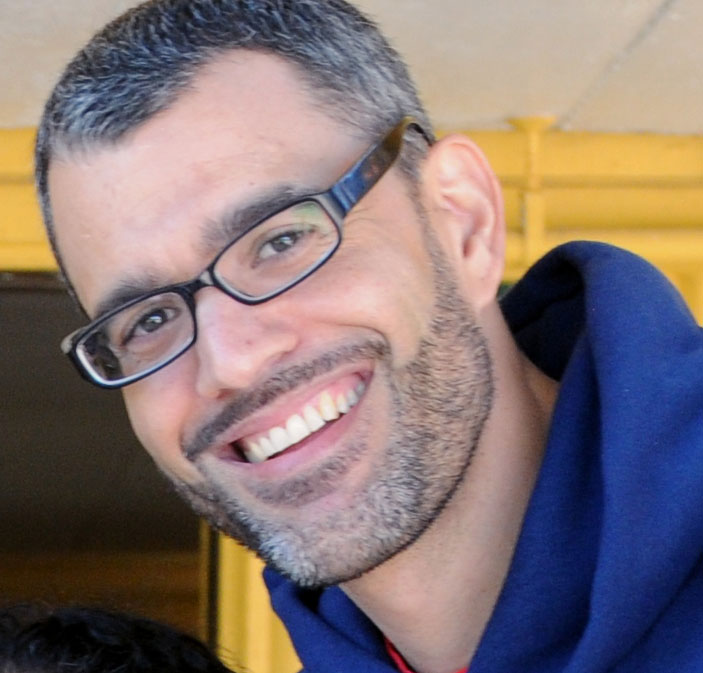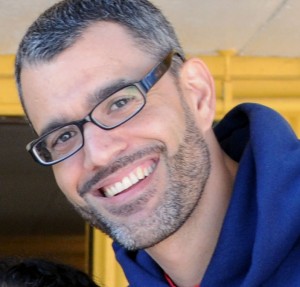What Does It Mean to Be an English Teacher and Student?
0September 6, 2013 by Tom McKenna

 —by Django Paris, Michigan State University; Associate Director, BLSE
—by Django Paris, Michigan State University; Associate Director, BLSE
This piece is adapted from remarks at the BLSE Vermont Opening Ceremonies, June 24, 2013.
One of the things I most cherish about Bread Loaf is that so many of us—faculty and students alike—are English teachers. We teach the discipline English as our chosen vocation. I’ve been thinking for some years now about what it means to claim this identity of English teacher, the possibilities of it and the responsibilities. What does it mean to be an English teacher in our pluralist society, a society where difference and equality—racial, ethnic, linguistic, spiritual, in terms of sexuality, and citizenship—is and will be and must be the norm around which we strive and thrive in the world? In a time when humanities and English—particularly the study and creation of literature, performance, the craft of teaching, of teaching writing—are under attack in elementary through university settings, we need answers to that essential question—what does it mean to be an English teacher and student? And why does it matter? What are we seeking to sustain through English?
I think about my own story of becoming a teacher and student of English. Although I loved reading and writing as a young person, by high school I had come to believe I was not good at English (I often find that we become English teachers because we either had fabulous English experiences or terrible ones as high schoolers). My middle and high school English teachers, however caring and well meaning, lacked the knowledge or commitment to join the study of reading and writing critically to my life: to make it necessary for being. This had much to do with my racialized identity as a Black/White biracial student, it had much to do with my complicated classed and family immigration narratives—we were very poor for much of my childhood despite the fact my father had a college degree when he came, undocumented, to the U.S. from Jamaica, and my mother worked and collected welfare before going back to school at 35 and getting a BA and then an MA, and I could go on. In essence, my teachers did not know how and did not attempt to take on these facets of myself—racialized, gendered, classed, languaged—in their selections of texts or in their engagements with texts. This pushed me from English. And even though I continued to read and write outside of school, English was not me; and so I meandered through the basic track, played basketball, and was seen more as an athlete than a student. Indeed, I will never forget the day I went into the guidance counselor’s office to declare I wanted to go to Berkeley and Mr. Steinberg, who had graduated from Berkeley himself, told me, “You’re not Berkeley material.” If by “not Berkeley material” Mr. Steinberg meant that I had not been supported in gaining the dominant academic language and literacy skills needed to thrive at an elite college, he was in many ways right. But he was also wrong in many ways; he could not see the ways my family and community life had prepared me well to join the history of political protest and community engagement that still echoed across the Berkeley campus from decades before. It was at Berkeley—a university I got into for many, many reasons but also because race was still considered a factor in admission at the time—where I began to receive the support, the engagement, the relevance to make reading and writing matter to my world and the world around me. In fact, it was in the basic writing class and early literature classes I felt this most as we wrote critically about our lives, as I read what bell hooks calls “narratives of struggle” from Black Diasporic writers past and present and from writers across race and ethnicity who, through their fictions and poems, challenged inequalities and imagined more equitable realities.
When I became an English teacher in Tucson, Arizona, at a high school designed for students—White, Brown, Black, all of them poor—who had been failed by the traditional public schools, I made a commitment to shift and change what had happened to me—to make my students, our communities, histories, literatures, and literacies central to what I did. My students and I asked how reading Sandra Cisneros, Sherman Alexie, Jamaica Kinkaid, or Robert Frost, writing about it, allowing it to influence our own telling and understanding of stories and poems, why any of this mattered?
When I think about what it means to be an English teacher I think of critical theorist and teacher Paulo Freire’s notion of reading the word and the world, where the act of reading and writing is a means to positive individual and social consciousness and action toward a more equal society. And when I think of the small ways I enacted such reading and writing the word and the world with youth in Tucson, I think about how we all at Bread Loaf are and must be necessarily part of such teaching.
For as a Bread Loaf Teacher Network member, Bread Loaf Students of Color member, and current student Lorena German said in the recent Bread Loaf promo video, “What happens at Bread Loaf does not stay at Bread Loaf.”
Indeed teaching and learning English here at Bread Loaf directly influence the lives of young people and communities in a dialogic relationship, rippling inward to our time together, then back outward into classrooms and communities. Nowhere is this dialogic relationship more evident than in the Bread Loaf Teacher Network, a group of current and former Bread Loafers collaborating to join Bread Loaf learning with their own genius and the genius of their students. BLTN is celebrating 20 years this summer under the visionary, compassionate, and dedicated leadership of longtime Bread Loaf faculty member and internationally renowned teacher educator Dixie Goswami.
When I think about what it means to be an English teacher, I think of this dialogic relationship, about Bread Loaf courses, and about BLTN. I think of Jineyda Tapia and Lorena German and their work with the Teach Lawrence program, work that partners with Lou Bernieri and Rich Gorham—BLTN members who graduated Bread Loaf decades ago and remain fiercely committed to joining Bread Loaf knowledge with the knowledge of students and communities. And I think of Brent Peters and his colleagues from Kentucky and their ongoing collaboration on food literacy with Navajo Nation students and teachers and with Navajo Nation Vice President and Bread Loaf graduate Rex Lee Jim. And of course I think of Bread Loaf graduates and teacher leaders Ceci Lewis and Susan Miera, who worked this year with faculty members Cheryl Glenn and Tilly Warnock and the teachers and students of the Santa Fe Indian School in a series of intensive collaborative writing workshops. I could go on listing such projects and collaborations between longtime BLTN members and current BL students and their classrooms, but this idea of the dialogic relationship between being teachers and learners of English at Bread Loaf—an English that necessarily includes the study of literature, creative writing, the teaching of writing and performance, the craft of pedagogy—and being teachers and learners of English in communities—this is what it means, what it must mean, to be a Bread Loaf English teacher, for faculty and students alike.
It remains to be seen how our learning together this summer will again ripple inward, then back outward into our classrooms and communities. How we will join our study of Gloria Anzaldúa, John Dewey, Charlotte Brontë, of Jacob Lawrence, Shakespeare, Pedro Almodóvar, of Junot Díaz, Foucault, Lucile Clifton, with the our own lives and with the genius of our students back home.
What does it mean to be an English teacher and student? What are we seeking to sustain through the study of English? When I think of these questions I reflect back on those days when English did not care about me and my communities and I think forward to the days English has helped sustain me, my students, and my communities through reading and writing our words and worlds.
I know that when the summer ends and we all return to our jobs, our schools, our homes, that we must hold onto this teaching and learning, this English, and join it in dialogue with our students and communities, wherever home may be.
Category Faculty Notes, Fall 2013, Issue | Tags:
Leave a Reply